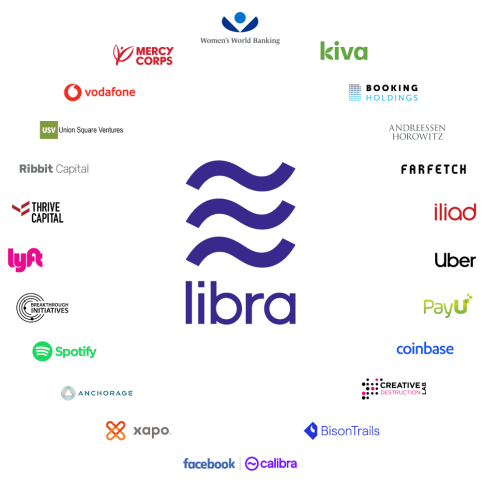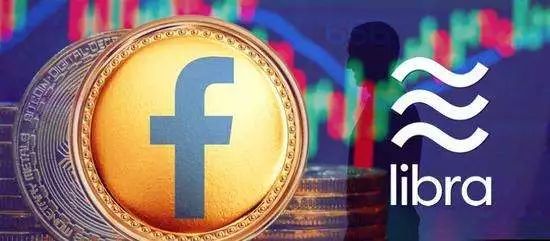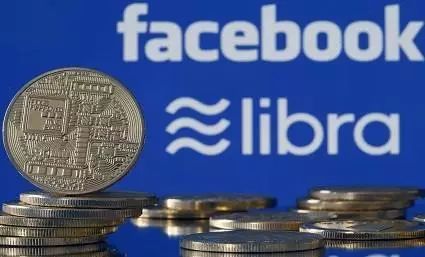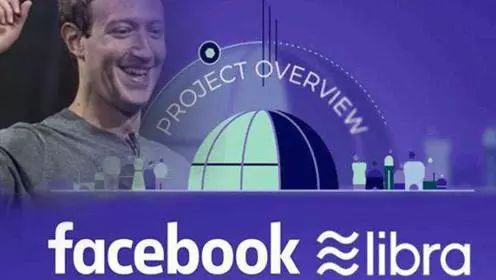Babbitt Column | Cai Kailong: How Libra Get Out of the Dilemma
Libra has suffered heavy losses in recent times and is experiencing a dark moment.
The first Libra formal meeting is scheduled to be held in Switzerland on the 14th of this month, and the founding members will formally sign the charter of the council at the meeting. Unexpectedly, many important founding members have escaped. After PayPal announced its withdrawal from Libra last Friday, five other big companies such as Visa, MasterCard, eBay and Stripe have also confirmed their withdrawal.

Multiple Libra alliances after withdrawal
- BMW, GM, etc., the world's top five automakers, collaborate to test block identity-based automotive identity systems
- Behind the blockchain summit of Shen Nanpeng and Wang Xing, there is a “capital giant crocodile” sitting on a $100 million
- Analysis: Is there a cost to store Bitcoin? Currently 2.1% per year
The root cause of their withdrawal: the unanimous opposition to global regulation has led to an increase in the uncertainty of Libra's implementation. In particular, these exit companies are themselves financial or financial technology companies, subject to financial regulatory pressure, so they opt out of the Libra Alliance.
Libra responded that the formal meeting will proceed as usual. Facebook said it has not given up its efforts. Its chief executive, Mark Zuckerberg, plans to attend the House Financial Services Committee hearing on the 23rd of this month to try to convince the legislation again. And regulators believe that their digital currency plans will not threaten the existing financial system.
Libra arrived at the most difficult time.
Today, the internal military is distracted and morale is low. If the attitude of regulatory opposition remains unchanged, the negative impact of the withdrawal of large companies will gradually spread, just as the domino chain collapses, which will lead to more member companies refusing to give up because of overwhelming pressure, triggering the collapse of Libra. (When Kai uncle wrote, another founding member came: Booking Holding exited, and currently 7 exits)
The failed Libra will severely hit the prospects of the digital currency industry, and bitcoin prices will also be significantly negatively affected . After all, the bitcoin bull market in the first half of 2019 was closely related to Libra's enthusiasm and concern.
Successively, Libra is in a difficult position in the current financial system and regulatory environment. Libra is a time to reflect deeply, adjust the strategy, and perhaps there is a chance.
Learn from history and learn from Bitcoin
History is the best teacher, and research on the already growing digital currency project may give Libra some inspiration.

Ecology, technology and compliance are the three most important characteristics of any successful digital currency.
Ecology refers to the complementary and self-balanced community system formed by participants in digital currency (including users, developers and managers). The measurement of ecology mainly depends on the number of users, application scenarios, transaction volume, community activity, and ecological management and operation mechanisms. Technology refers to the innovation and practicality of the underlying technology of digital currency. The main indicators are the number of technology developers, the speed of project updates, and the parameters of the digital currency itself, such as transaction speed and capacity. Compliance refers to the attitude of the regulator to the implementation of the digital currency, specifically reflecting whether the regulation of the country allows the trading and circulation of digital currency, and whether the corresponding regulatory measures are introduced.
Ecology, technology and compliance also interact. Mature technology is the foundation of ecological perfection. A good ecology contributes to the recognition of regulation. The attitude of supervision, in turn, will affect the development of ecology and technology.
Taking Bitcoin as an example, 11 years ago, the genius Nakamoto launched Bitcoin, which at the time belonged to the pioneering work of the past. Bitcoin's distributed ledgers based on blockchains, fixed output speeds and totals, mining mechanisms measured by computational power, and completely decentralized management are all refreshing. At the beginning, only a handful of technical geeks participated, and the community gradually expanded and prospered, attracting tens of millions of users today, participating in multiple scenarios of payment, investment, collection and trading.

The attitude of supervision to Bitcoin has also undergone tremendous changes, from the initial neglect and resistance to the relative importance and acceptance of today. In the United States, Bitcoin has been officially recognized as a commodity, and its derivatives have also been allowed to trade on official exchanges. In Japan, Bitcoin is a payment method that has the same status as a French currency. The reason for the regulatory approval of Bitcoin, in addition to the huge user base of Bitcoin, is that Bitcoin is a completely open, transparent, decentralized system. It is difficult to manipulate and does not represent the interests of anyone or the company. Suppose that one day, the mysterious founder of Nakamoto Satoshi, can refuse to participate in the US Congress to call the Bitcoin hearing, because in the completely decentralized bitcoin system, even the founders can not control the development of Bitcoin.
In contrast to Libra, its advantages and disadvantages are equally prominent. In order to achieve the goal of simultaneous use by billions of people, Libra has adopted a technology with a very high transaction throughput and low latency programming language (MOVE) and a unique consensus mechanism (LibraBFT). Although these technologies are still in the early stages of experimentation, Libra's technical goal of achieving its goals should not be a problem with Facebook's technical strength and talent pool.
The problem is compliance, which is precisely because of the potentially huge ecology of Libra.
Libra's most eye-catching vision is its vision for the future: through a coalition of 100 big names, it creates a global non-sovereign digital stable currency that allows more than half of the world's population to easily pay and settle. It has a large number of potential users and a wide range of uses, not to mention the unprecedented digital currency industry. Even in the existing financial world, no country or financial institution has ever achieved this goal. The only thing that rivals Libra's vision is perhaps the dollar.
The extremes of the matter must be reversed. It is precisely because of the grand plan that it is subject to the boycott of supervision by various countries. The financial industry has a bag of money for everyone, and it has always been a very regulated industry. Among them, the currency of the French currency is particularly important. It is a symbol of national sovereignty. Nowadays, a global monopoly and poorly-recognized Internet company, in conjunction with some large companies, wants to issue a globally-used unsecured digital stable currency, which will undoubtedly shake the global financial system and grab the jobs of central banks. The suspicion, distrust and resistance of supervision are completely understandable.
In contrast, Bitcoin's balanced development in ecology, technology, and regulation goes hand in hand, and Libra is heavily officipated. It is technically excellent in terms of ecological subjects, but it has zero points in compliance .
Three major measures to get out of trouble
The key to Libra's departure from the current predicament is how to take advantage of ecology and technology to gain regulatory understanding and trust and reduce compliance resistance. The following three measures should be considered:
First, Facebook and Libra are decoupled to minimize the centrality of Facebook.
In the early days of the Libra Alliance, Facebook played a leading role, but Cheng also Xiao He, defeated Xiao He. Since Facebook has 2.6 billion users and has occupied an absolute monopoly in the global social field, there have been frequent incidents of improper use of user information. Countries, especially the United States and the European Union, have long been dissatisfied with Facebook. Facebook's push for Libra will undoubtedly shake the global financial system and touch the most sensitive nerves of countries. Senator Sherrod Brown of the United States publicly yelled to Libra members: "Facebook is too big, too powerful, it is unreasonable for financial companies to help it monopolize our economic infrastructure!" and suggests that participation in the project may lead to regulation The department has increased the review of member companies. Obviously, the Facebook tree has become a hindrance to the further development of Libra.

Gaining regulatory trust requires long-term communication, but if communication does not produce the desired results, it can only be changed through the setting of techniques and mechanisms. Blockchain, because of its distributed decentralization, is known as "creating a trust machine." Libra should refer to Bitcoin's success, especially how Bitcoin gains regulatory approval experience through a fully decentralized feature. Facebook should be decoupled from Libra as soon as possible, allowing the fully independent Calibra company to participate in the affairs of the alliance, and at the same time launch the alliance members to work together, instead of taking Facebook as the core, single-handedly, alone.
Regulatory is more likely to accept Libra, which is decoupled from Facebook.
From Facebook's point of view, isolation from Libra also helps the company's long-term development and protect the interests of shareholders. After all, the integration of the entire company brand on the Libra project is now too desperate. Libra's recent trends and news can cause Facebook stock price volatility and shareholder attention. Facebook is the time to take appropriate measures to isolate risk against itself and Libra. It helps.
Second, steady and steady, first achieve short-term goals – step by step
Libra's mistake is that the ecology has not really formed, and the technology has not yet landed. It has started to publicize its momentum and publicize its grand plan, which has become the focus of global attention. In doing so, it prematurely draws regulatory attention, so Libra has to spend a lot of valuable energy on regulatory advice and hearings. This can be referred to JPM coins issued by JPMorgan Chase for inter-agency transaction settlement and Ripple coins issued by Ripple for cross-border payment. They are all low-key, first, and then have a certain basis, and then announce the results. On this basis, when communicating with regulators, they have a living example that is more convincing than the white paper and PPT in the sky.
It is too difficult to start Libra by knowing the time and the situation. Libra should adjust the short-term goal, step by step, after all, can't eat a big fat man. If globality is not available at this stage, then limit the scope of use and achieve regionality, such as Japan, which is the most open to digital currency. If a completely open ecology is temporarily unavailable, then a restrictive ecology will be implemented to allow specific authorized users to use it. If cross-border payments involve too much foreign exchange control and financial security, start with an easier internal platform payment. If necessary, let Libra run to create a financial sandbox environment that allows regulators to see tangible results.
The key to these initiatives is to make Libra's best-selling ecology and technology useful, so that users can really taste the benefits of inclusive finance from Libra, and then force supervision to adjust and adapt. The trust of supervision is actively pursued, and even the need to create conditions to force, rather than blindly begging.

In short, Libra's vision is ambitious, but realizing this vision is a long and dynamic process that cannot be accomplished overnight. It can only be a spiraling process. Stable and steady, step by step is the only way for Libra to achieve its ambitious goals.
Finally, the rapid expansion of technology-based Internet companies, especially blockchain companies, became members.
Libra expects full compliance, so there is a lot of balance when choosing a founding member company. There are seven financial and payment companies as founding members outside of Internet companies and blockchain companies. However, it turns out that fish and bear's paw can't have both. Since six of the seven financial and payment companies have withdrawn from the league, and this "fish" has not been available, it should be liberalized to recruit technology-based Internet companies, especially blockchain companies . These companies have relatively little compliance burden and strong execution and creativity, which is conducive to quickly breaking the current stalemate . According to reports, 1,500 companies have applied to become Libra members, including many big-name Internet companies and well-known digital currency exchanges. It is believed that Libra should be able to select the right member companies to create a great cause.

Nowadays, Zuckerberg’s blood is splashed with a large basin of cold water, which confirms the words: the ideal is full, and the reality is very skinny.
Since the strategy of holding high and high is no longer effective, Libra urgently needs to review the situation and use its own ecological and technical advantages to overcome the shortcomings in compliance and re-adjust the road.
Libra's vision is “to create a global monetary and financial infrastructure that serves billions of people.” Although there is a long way to go to achieve the goal, the true global financial picture it portrays is really exciting.
I sincerely hope that Libra will succeed soon.
Author: Cai Kailong
We will continue to update Blocking; if you have any questions or suggestions, please contact us!
Was this article helpful?
93 out of 132 found this helpful
Related articles
- I understand the super-book DLT, library, development tools, how many members of the Hyperledger family do you know?
- Market Weekly | Market recovery last week lost ground, countries have frequently regulated the blockchain industry
- Opinion | a16z: Libra should give up a basket of currencies, only anchored with the dollar
- Marching to China! Entering China has become a consensus in overseas mining circles | International Mining Summit
- US Treasury Secretary: Visa, PayPal, etc. withdraw from Libra because they have not yet reached regulatory standards and are worried about government action
- Before Zuckerberg attended the hearing, the five major Libra members, including Visa and MasterCard, withdrew
- Why did you not disclose the blockchain layout when you squeezed out the US group that Baidu promoted the ATM combination?






